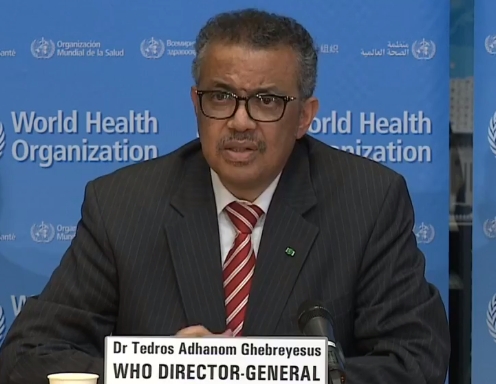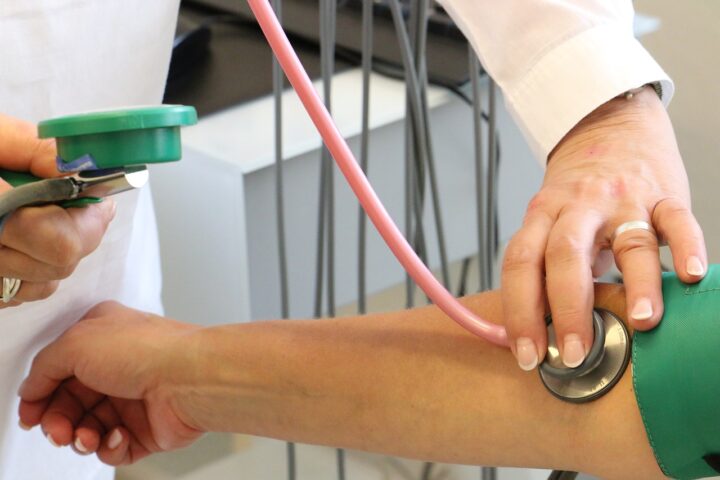
Il direttore generale dell’Oms Tedros Adhanom Ghebreyesus nel briefing da Ginevra sull’epidemia di coronavirus ha dato l’annuncio che si temeva: “Abbiamo valutato che il COVID-19 può essere caratterizzato come una situazione pandemica“.
“L’Oms ha valutato questa epidemia giorno dopo giorno – ha proseguito – e siamo profondamente preoccupati sia dai livelli allarmanti di diffusione e gravità, sia dai livelli allarmanti di inazione”.
“Nei giorni e nelle settimane a venire prevediamo un aumento del numero di casi, del numero di morti e del numero di Paesi colpiti”, ha detto ancora il direttore generale dell’Oms.
Intanto il premier Giuseppe Conte ha comunicato, al termine del Consiglio dei Ministri, lo stanziamento di una somma straordinaria di 25 miliardi da non utilizzare subito ma sicuramente da poter utilizzare per far fronte a tutte le difficoltà di quest’emergenza”.
“Complessivamente – si legge nella nota diffusa – , sentita la Commissione europea, la richiesta di autorizzazione all’ulteriore ricorso all’indebitamento, aggiuntiva rispetto a quanto già indicato nella Relazione al Parlamento 2020, è incrementata di 13,75 miliardi di euro (pari a circa 0,8 punti percentuali), da utilizzare nel corso del 2020. Considerata anche la precedente richiesta di autorizzazione, l’obiettivo programmatico di indebitamento netto potrà pertanto aumentare fino a 20 miliardi di euro, corrispondenti a circa 1,1 punti percentuali di prodotto interno lordo (PIL).
Considerato l’importo complessivo per il quale si chiede l’autorizzazione delle Camere, il saldo netto da finanziare del bilancio dello Stato potrà aumentare fino a 104,5 miliardi di euro nel 2020 in termini di competenza e a 154 miliardi di euro in termini di cassa, con un incremento degli stanziamenti fino a 25 miliardi sia in termini di competenza che in termini di cassa.”
Tedros Adhanom Ghebreyesus in conferenza stampa, ecco cosa ha detto:
“In the past two weeks, the number of cases of COVID-19 outside China has increased 13-fold, and the number of affected countries has tripled. There are now more than 118,000 cases in 114 countries, and 4,291 people have lost their lives. Thousands more are fighting for their lives in hospitals. In the days and weeks ahead, we expect to see the number of cases, the number of deaths, and the number of affected countries climb even higher. WHO has been assessing this outbreak around the clock and we are deeply concerned both by the alarming levels of spread and severity, and by the alarming levels of inaction. We have therefore made the assessment that COVID-19 can be characterized as a pandemic.
Pandemic is not a word to use lightly or carelessly. It is a word that, if misused, can cause unreasonable fear, or unjustified acceptance that the fight is over, leading to unnecessary suffering and death.
Describing the situation as a pandemic does not change WHO’s assessment of the threat posed by this virus. It doesn’t change what WHO is doing, and it doesn’t change what countries should do. We have never before seen a pandemic sparked by a coronavirus. This is the first pandemic caused by a coronavirus.
And we have never before seen a pandemic that can be controlled, at the same time. WHO has been in full response mode since we were notified of the first cases. And we have called every day for countries to take urgent and aggressive action. We have rung the alarm bell loud and clear.
As I said on Monday, just looking at the number of cases and the number of countries affected does not tell the full story. Of the 118,000 cases reported globally in 114 countries, more than 90 percent of cases are in just four countries, and two of those – China and the Republic of Korea – have significantly declining epidemics. 81 countries have not reported any cases, and 57 countries have reported 10 cases or less. We cannot say this loudly enough, or clearly enough, or often enough: all countries can still change the course of this pandemic.
If countries detect, test, treat, isolate, trace, and mobilize their people in the response, those with a handful of cases can prevent those cases becoming clusters, and those clusters becoming community transmission. Even those countries with community transmission or large clusters can turn the tide on this virus.
Several countries have demonstrated that this virus can be suppressed and controlled. The challenge for many countries who are now dealing with large clusters or community transmission is not whether they can do the same – it’s whether they will. Some countries are struggling with a lack of capacity.
Some countries are struggling with a lack of resources. Some countries are struggling with a lack of resolve.
We are grateful for the measures being taken in Iran, Italy and the Republic of Korea to slow the virus and control their epidemics. We know that these measures are taking a heavy toll on societies and economies, just as they did in China.
All countries must strike a fine balance between protecting health, minimizing economic and social disruption, and respecting human rights. WHO’s mandate is public health. But we’re working with many partners across all sectors to mitigate the social and economic consequences of this pandemic. This is not just a public health crisis, it is a crisis that will touch every sector – so every sector and every individual must be involved in the fight. I have said from the beginning that countries must take a whole-of-government, whole-of-society approach, built around a comprehensive strategy to prevent infections, save lives and minimize impact.
Let me summarize it in four key areas.
First, prepare and be ready.
Second, detect, protect and treat.
Third, reduce transmission.
Fourth, innovate and learn.
I remind all countries that we are calling on you to activate and scale up your emergency response mechanisms;
Communicate with your people about the risks and how they can protect themselves – this is everybody’s business;
Find, isolate, test and treat every case and trace every contact;
Ready your hospitals;
Protect and train your health workers.
And let’s all look out for each other, because we need each other.
There’s been so much attention on one word.
Let me give you some other words that matter much more, and that are much more actionable.
Prevention.
Preparedness.
Public health.
Political leadership.
And most of all, people.
We’re in this together, to do the right things with calm and protect the citizens of the world. It’s doable.
I thank you.”










